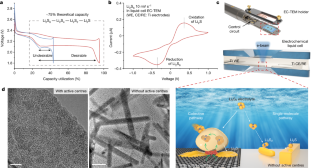2023-09-07 パデュー大学
◆この接着剤は、サンゴ礁の修復を含む多くの分野で応用可能で、水中での性能が通常の接着剤よりも高いことが示されています。また、製造プロセスは短縮可能で、持続可能な植物由来の材料を使用しています。この新しい接着剤は、生体内やバイオメディカル応用を含む幅広い用途に適しており、環境にやさしい選択肢として注目されています。サンゴ礁の修復にも貢献し、多くの種や生態系への適用が期待されています。
<関連情報>
- https://www.purdue.edu/newsroom/releases/2023/Q3/new-bio-based-glues-from-purdue-form-adhesive-bonds-that-grow-stronger-in-water.html
- https://pubs.acs.org/doi/10.1021/acsami.3c04009
タンニン酸とゼインタンパク質からのバイオベース接着剤による水中接着 Underwater Bonding with a Biobased Adhesive from Tannic Acid and Zein Protein
Gudrun Schmidt, Peter E. Christ, Paige E. Kertes, Racheal V. Fisher, Logan J. Miles, and Jonathan J. Wilker
ACS Applied Materials & Interfaces Published:June 28, 2023
DOI:https://doi.org/10.1021/acsami.3c04009
Abstract

Herein are presented several adhesive formulations made from zein protein and tannic acid that can bind to a wide range of surfaces underwater. Higher performance comes from more tannic acid than zein, whereas dry bonding required the opposite case of more zein than tannic acid. Each adhesive works best in the environment that it was designed and optimized for. We show underwater adhesion experiments done on different substrates and in different waters (sea water, saline solution, tap water, deionized water). Surprisingly, the water type does not influence the performance to a great deal but the substrate type does. An additional unexpected result was bond strength increasing over time when exposed to water, contradicting general experiments of working with glues. Initial adhesion underwater was stronger compared to benchtop adhesion, suggesting that water helps to make the glue stick. Temperature effects were determined, indicating maximum bonding at about 30 °C and then another increase at higher temperatures. Once the adhesive was placed underwater, a protective skin formed on the surface, keeping water from entering the rest of the material immediately. The shape of the adhesive could be manipulated easily and, once in place, the skin could be broken to induce faster bond formation. Data indicated that underwater adhesion was predominantly induced by tannic acid, cross-linking within the bulk for adhesion and to the substrate surfaces. The zein protein provided a less polar matrix that helped to keep the tannic acid molecules in place. These studies provide new plant-based adhesives for working underwater and for creating a more sustainable environment.


